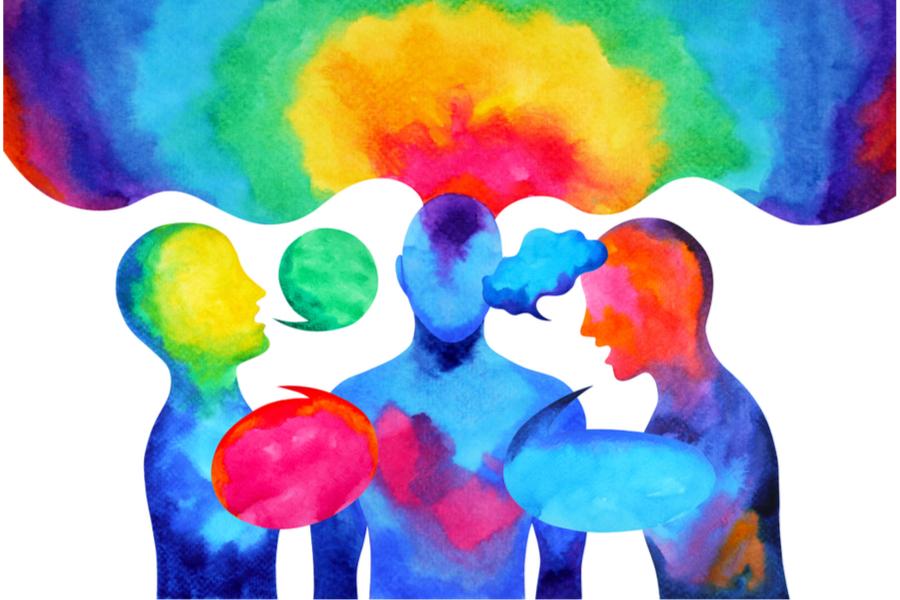Three ways organisations can help with anxiety, despair and loss
Safe spaces at work, organisational volunteerism, wellness habits are the three ways organisations can help employees cope with the mental health fallout of the pandemic
Today you will be hard pressed to find anyone around you completely untouched by the traumatic second wave of Covid-19. Some lucky ones have had a light brush with the virus, ohers have been dealt a far heavier blow.
Losing a loved one is always difficult, but this time around, the loss is heavier. It has been accompanied by a sense of helplessness, suddenness, and despair.
Take Nishant's case for instance. In just three weeks, he lost a brother-in-law and two grandparents. He still can't believe that it was only six months back that there were still a part of his life.
His parents have spent many days in silence. Unsure of how to process so much loss in such a short a time, they have been alternating between crying quietly and distracting themselves with the TV. While Nishant had taken just a few days off work, he finds it very hard to focus and concentrate on anything.
Anita’s father had always been her pillar. When she wanted to pursue a career as a journalist, it was he who encouraged her to be brave. To go where no one else had had the courage to go. To tell the stories that needed to be told.
Four weeks ago, when he complained of unease in his chest, she had moved heaven and earth to organise an oxygen cylinder, but it didn’t work the way it was meant to. In just a few hours, she had lost him as he gasped for breath. That is an image she is haunted by each day.
Many mental health experts are warning us of an impending mental health crisis, the worst since partition.
When I speak to human resources professionals or business people all around, they understand and are often equally shaken by the events of the last few weeks. But this is new territory and no one is quite sure how to respond.
Over the past few weeks, I interviewed experts in fields as diverse as psychiatry, wellness, and spiritual wellbeing to learn more.
There seem to be at least three ways organisations can help.
Create spaces for collective experience sharing
What we have just experienced is collective emotional trauma. And the way out is also collective. Human societies have done their best healing by sharing their stories and listening to those of others.
This time around, this has been complicated by the fact that we have had little physical contact with others. Our anxiety, our grief, and our despair have been our own. Yet it is in the collective sharing of these stories that we heal and grow.
So what can organisations do?
A great place to start may be to create safe spaces for sharing. This could take the form of support groups for anyone who has experienced loss. Virtual support groups till it is safe to return to offices.
Leaders can also create space for safe conversations within their own teams. To be able to support each other—we first need to hear each other.
Organisations who are able to do so will communicate that they care for their people—as humans first. To be able to share our true experiences and be heard is a very powerful experience. We feel connected and together.
Access to wellness and happiness habits
There is a famous couplet by the poet-saint Kabir Das which goes something like this: “We all remember him in our sad times and not in our happy ones. If we remembered him in our happy times, we would not be so sad when things are difficult.” (Dukh mein sumeeran sab karein, sach mein karein na koi. Jo sach mein sumeeran karein, dukh kaahe ko hoye)
True of spiritual practices. True of wellness practices.
Practices cannot take away our loss. But they can give us the resources to cope. Today, whether you have played the role of a caregiver, supported a friend through their loss, or lost a loved one yourself, having good practices to fall back on is a great strength.
This is also an area where many organisations can help.
Access to different practices at little or no cost builds resilience and communicates care.
Volunteerism
There are two things we know about organisational volunteerism.
People who volunteer to help others through a crisis feel stronger themselves. The very process of volunteering is empowering and good for sense-making.
But did you know that a recent study also shows that corporate volunteers have far lower rates of attrition? Volunteerism connects them to their organisations in yet another way.
So organisational volunteerism is a great way for organisations to help.
This could take the form of organising vaccination camps or help for healthcare workers or jobs for devasted families. The possibilities are endless.
As the second wave recedes, it takes the edge off our collective stress. It opens us to the possibility of healing. It is my hope that sensitive organisations will take the lead in this process.
It is good for those who work there. It is good for the organisations themselves. And it is good for us as a society.
Dr Shalini Lal is the co-founder of Unqbe and works at the intersection of ‘people and organisations’ and ‘the future of work’. She has a PhD in organisational science from UCLA and has been a senior HR leader
The thoughts and opinions shared here are of the author.
Check out our end of season subscription discounts with a Moneycontrol pro subscription absolutely free. Use code EOSO2021. Click here for details.

